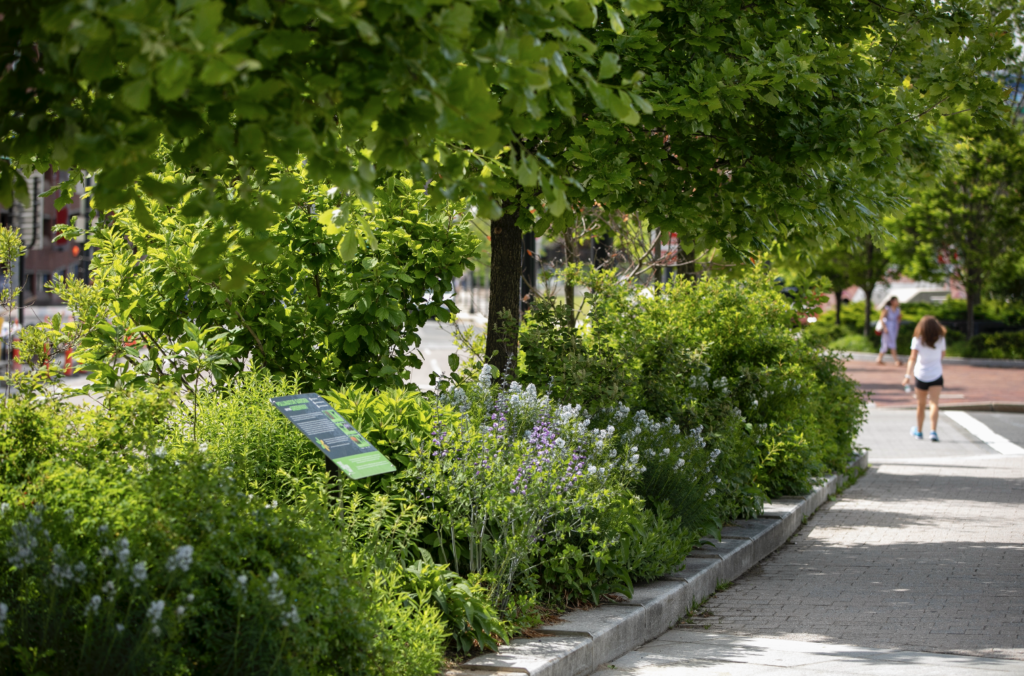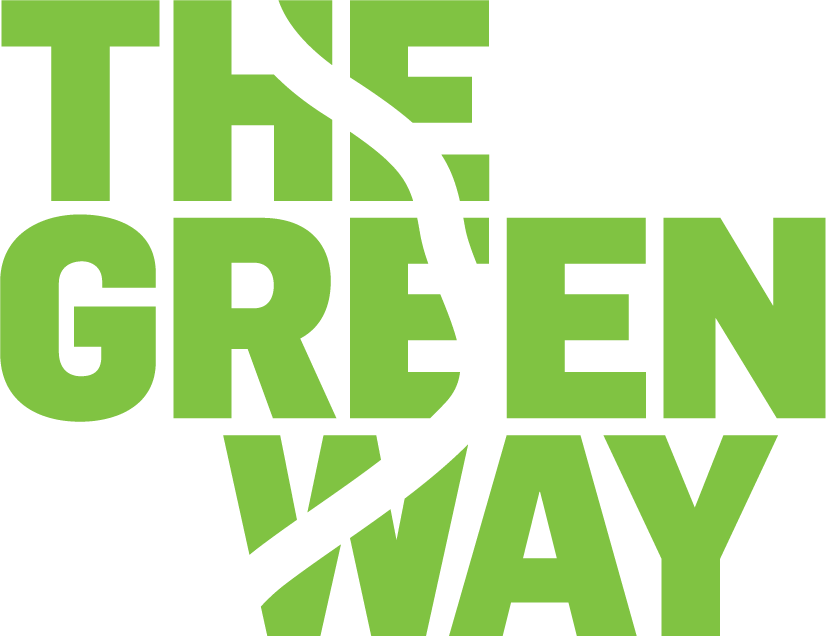Written by Jesse Brackenbury, Executive Director
As I prepare to depart in late April to lead the Statue of Liberty-Ellis Island Foundation, I wanted to reflect on the Greenway Conservancy’s efforts over the eleven years I’ve worked here. I’ve been lucky to work on the care and improvement of The Greenway since the first year of the Conservancy’s operations; I was hired in December 2009 and have led the Conservancy since the beginning of 2013. Through a series of blog posts, I want to share the work of our incredible staff, Board, and volunteers to make The Greenway a leader in park sustainability, vibrancy, and innovation.
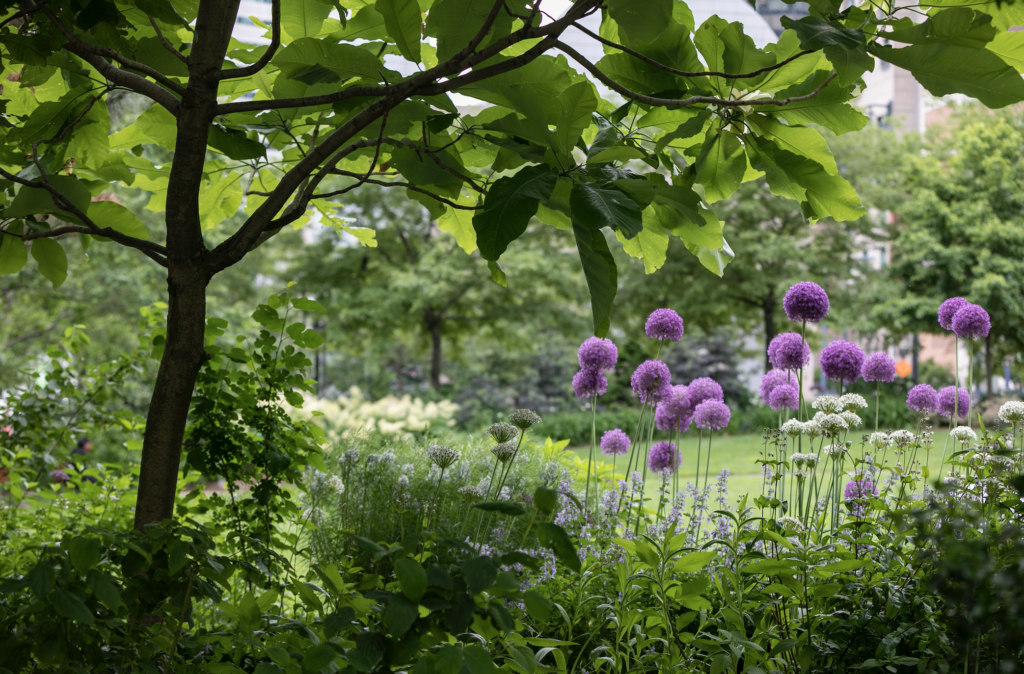
The aspiration in our Mission is to “raise the standard of excellence for urban park management.” We’re committed not only to offer a healthy green space with park care that sustains year-round beauty but to “model environmental stewardship”. We have continually pushed to be environmental leaders–from organic care to pollinator habitat to climate change preparedness.
The Greenway was one of the first public parks in the country with lawns and gardens that were cared for organically, without chemical pesticides and herbicides. Visitors can play safely on our lawns, and run-off from the park will not pollute Boston Harbor. The cornerstone of our organic program is brewing compost tea, which we featured in a webinar this summer. All grass clippings and other organic material from the park are composted, rather than trashed.
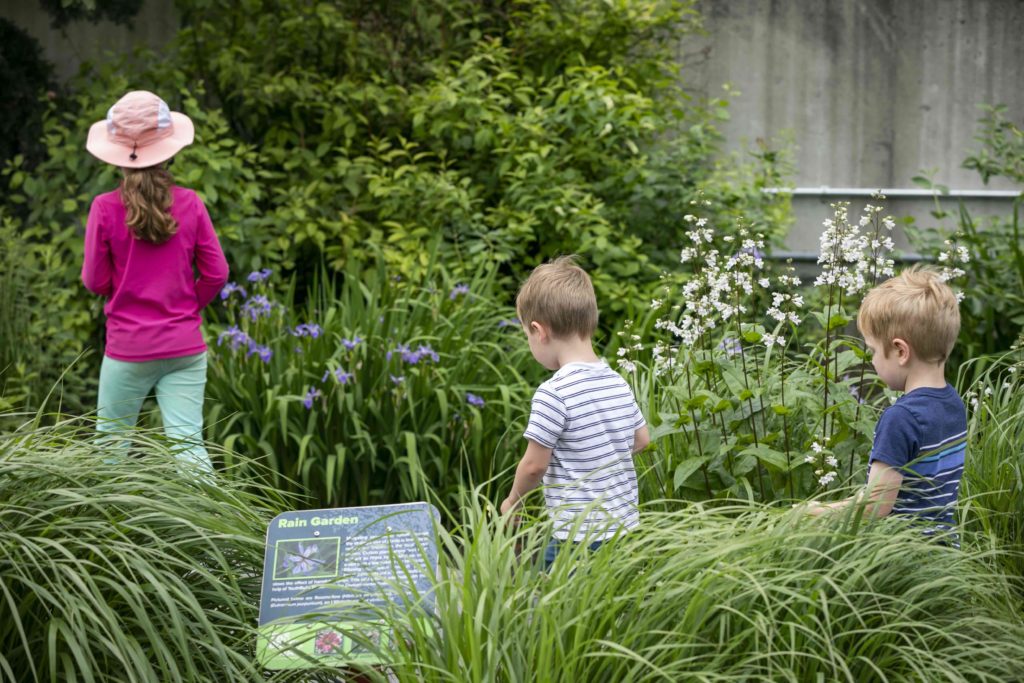
Our pioneering organic care, however, was just the beginning of our green efforts. In 2012, we built demonstration rain, pollinator, and edible gardens at Dewey Square. Starting in 2016, we created a pollinator ribbon to support beneficial insects in 16 gardens throughout the park, including adding a 7,200 square-foot wildflower meadow. The pollinator ribbon designs mimic the natural habit and groupings of plants, and create plant communities that are dense, lush, and mutually supportive; the native plants create a complex ecology both above and below the soil, benefiting a broad range of wildlife and insects. In 2019, we added the first beehives in a Boston public park; the bees are active from early spring through late fall, collecting nectar and helping to pollinate flowers and edible plants up to three miles away. We now see many monarch butterflies on The Greenway each year!
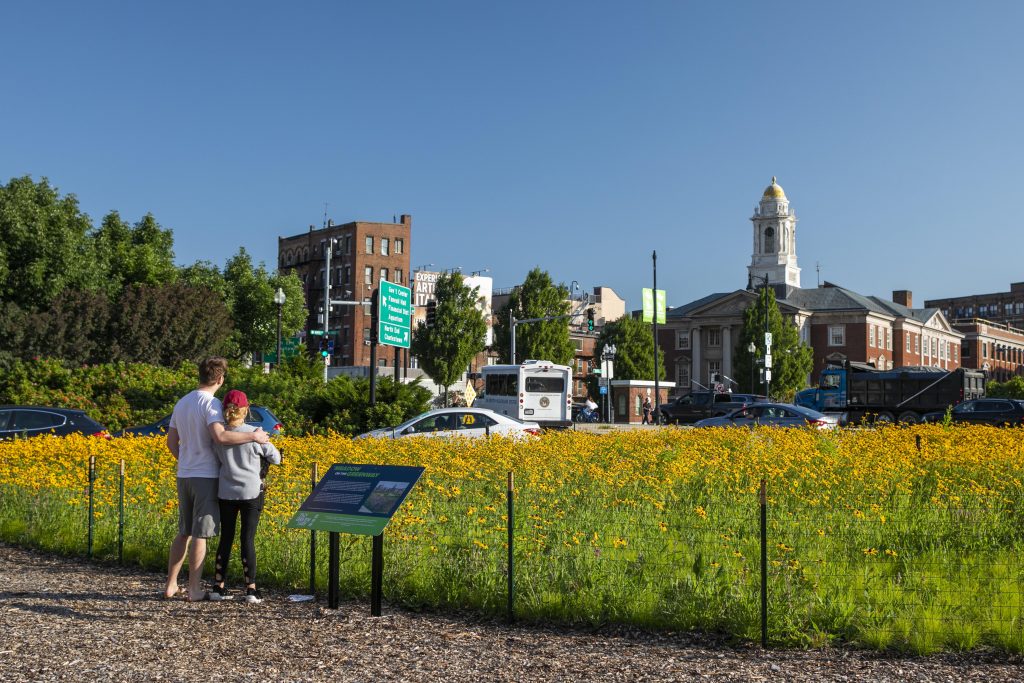
We engage and educate the public about our gardens and about gardening. The Greenway is unique: a roof garden over a highway tunnel, with much greater plant diversity than a typical public park. In 2020, we unveiled a new visual display tool for the public to understand the blooming of the park’s thousands of plant species. We also engage with thousands of volunteers to pull weeds instead of spray them with chemicals; these volunteers get a hands-on education about our organic approach and diverse plant collection.
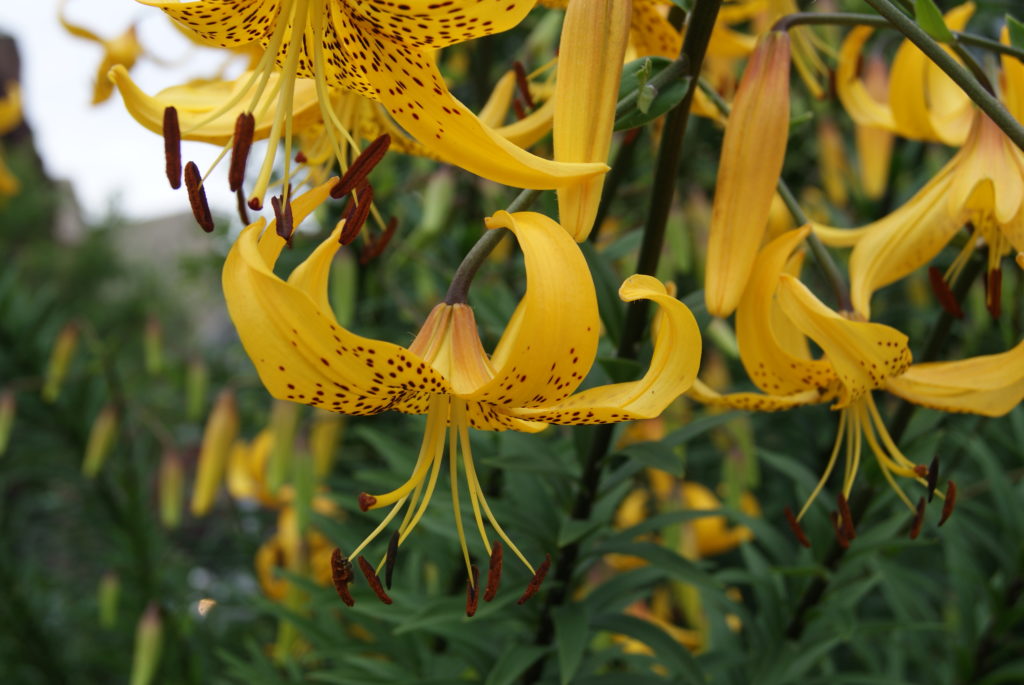 We’ve continued to adopt sustainability practices in our park operations. We have closely managed the park irrigation to minimize water use and strengthen our plants’ root systems. Upon opening there was no recycling in the park, but now there are 22 barrels, diverting more than 250 cubic-yards of recyclables from landfills annually. We will have upgraded all of the park’s ~500 lights to energy-efficient LEDs by the end of this year. As we’ve retired five fossil-fuel vehicles over the past several years, we’ve replaced them with electric vehicles. All leaf blowers used in the park are now electric.
We’ve continued to adopt sustainability practices in our park operations. We have closely managed the park irrigation to minimize water use and strengthen our plants’ root systems. Upon opening there was no recycling in the park, but now there are 22 barrels, diverting more than 250 cubic-yards of recyclables from landfills annually. We will have upgraded all of the park’s ~500 lights to energy-efficient LEDs by the end of this year. As we’ve retired five fossil-fuel vehicles over the past several years, we’ve replaced them with electric vehicles. All leaf blowers used in the park are now electric.
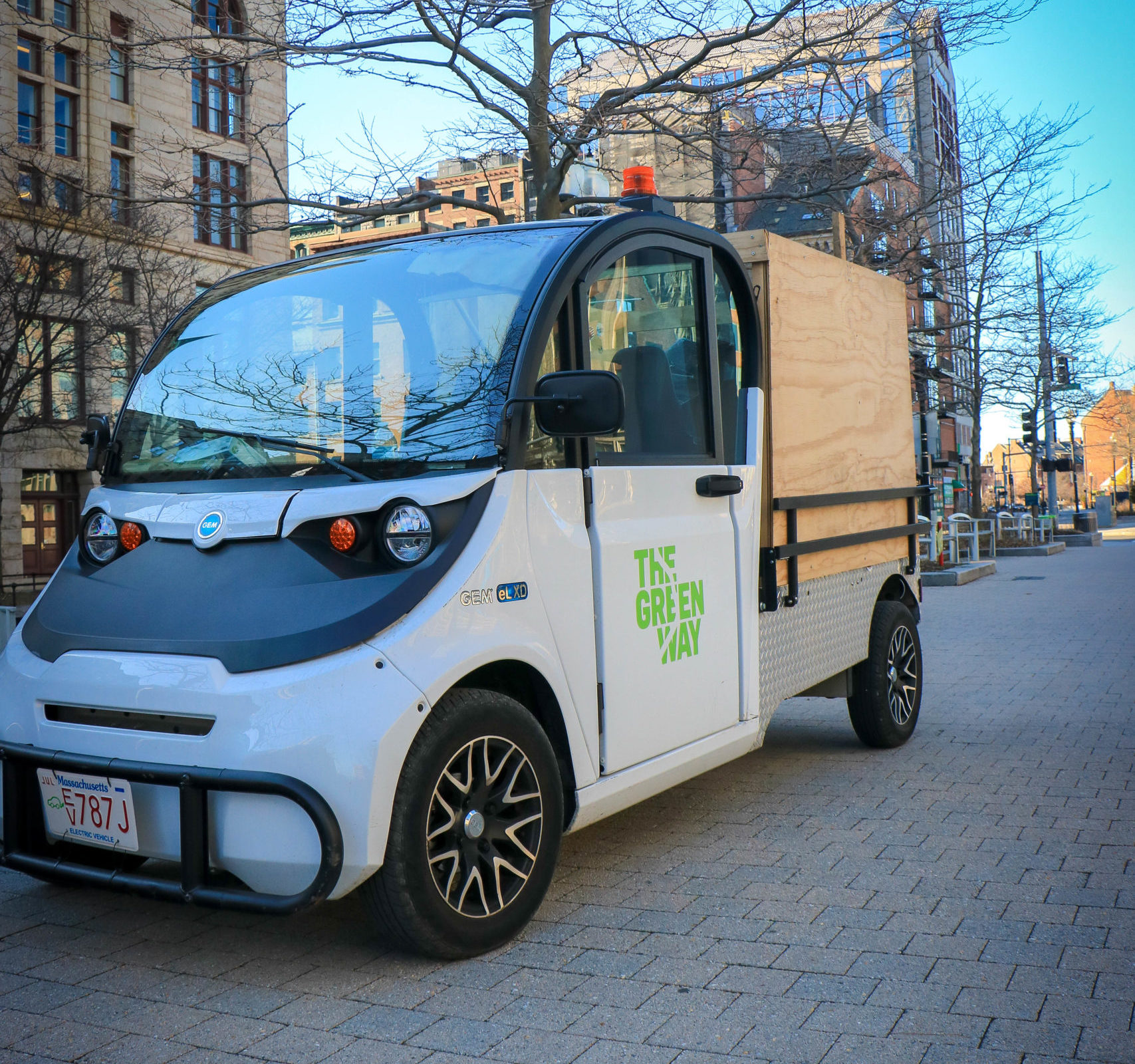
We’re proactively planning for the most important environmental issue: climate change. The Greenway, located one block west of Boston’s downtown waterfront, faces significant and growing risks of damage and disruption from climate change and extreme storm events. In 2020, the Greenway Conservancy commissioned a Climate Change Vulnerability Assessment and Asset Management Plan, which we summarized in this blog post.
For The Greenway’s millions of visitors, we are creating a lush, healthy landscape with sustainability practices that are more economical. Our organic park care has been emulated elsewhere in the city and country and has been recognized with a Greenovate Award from the Mayor’s Office. Way back in high school, I founded the Environmental Club, and it’s great to still be focused on sustainability.
